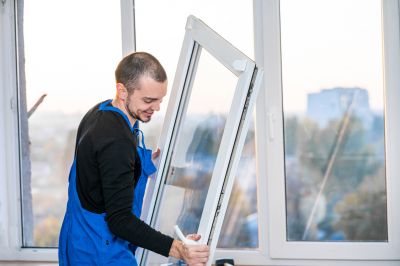Favorite Storm Restoration Gear For Emergency Repairs
Equip yourself with essential gear designed to support fast and safe property restoration after severe weather events.
 Storm restoration products are essential tools and materials used to repair and reinforce structures damaged by severe weather events. In areas like Upland, CA, where storms can bring heavy rain, wind, and potential flooding, having the right products on hand can facilitate efficient repairs and help protect properties from further damage. These products range from temporary coverings to permanent structural reinforcements, each serving specific needs during the restoration process.
Storm restoration products are essential tools and materials used to repair and reinforce structures damaged by severe weather events. In areas like Upland, CA, where storms can bring heavy rain, wind, and potential flooding, having the right products on hand can facilitate efficient repairs and help protect properties from further damage. These products range from temporary coverings to permanent structural reinforcements, each serving specific needs during the restoration process.
Top Overall Option
Heavy-Duty Weatherproof Tarp
A versatile and durable weatherproof tarp can serve multiple purposes during storm restoration. It provides temporary coverage for damaged roofs, windows, or doors, helping to prevent further water intrusion. Made from high-density polyethylene or similar materials, it offers resistance to tearing, UV damage, and water penetration. Easy to secure with ropes or bungee cords, this product is a practical choice for emergency repairs and ongoing restoration efforts.
Types of Products For Storm Restorations
Weatherproof Tarps
Heavy-duty tarps designed for temporary protection against rain, wind, and debris.
Sealing and Repair Tapes
Waterproof tapes for sealing leaks around windows, roofs, and pipes.
Roofing Underlayment
Protective layers installed beneath roofing materials to prevent water intrusion.
Flood Barriers and Sandbags
Portable barriers to divert water and protect properties from flooding.
Structural Reinforcement Materials
Steel braces, plywood sheathing, and other materials used to reinforce damaged structures.
Waterproof Sealants
Sealants for sealing cracks and joints in walls, foundations, and roofs.
Emergency Generators
Portable power sources to maintain essential functions during outages.
Debris Removal Tools
Shovels, axes, and debris bags for clearing storm debris from properties.
Portable Lighting
LED work lights and floodlights for safe work during low-light conditions.
Moisture Meters
Tools for assessing water intrusion and moisture levels in structures.
Ventilation Equipment
Fans and dehumidifiers to dry out flooded or damp areas.
Roofing Nails and Fasteners
Specialized fasteners for securing roofing materials during repairs.
Storm Shutters
Protective shutters to safeguard windows against high winds and debris.
Inspection Cameras
Remote cameras for inspecting hard-to-reach or damaged areas.
Safety Gear
Helmets, gloves, and protective eyewear for worker safety during restoration.
Popular Choices
Widely used for quick coverage of storm-damaged areas, providing temporary protection.
Commonly applied for sealing leaks on roofs and pipes during emergency repairs.
Effective in diverting water away from vulnerable properties during floods.
Popular for maintaining power supply during outages caused by storms.
Frequently used in roof repair projects to add an extra layer of water resistance.
Essential for clearing storm-related debris and ensuring safe access to properties.
Helpful for assessing water damage and moisture levels post-storm.
Commonly used to dry out flooded or damp interior spaces.
Popular for protecting windows before storms occur.
Standard safety equipment for workers during storm restoration tasks.
Frequently used for sealing cracks in foundations and walls.
LED floodlights are often chosen to illuminate work areas during power outages.
Popular for inspecting hidden or hard-to-reach damage inside structures.
Commonly used to ensure safe working conditions at storm sites.
Frequently selected for temporary or permanent structural repairs.
Durability and reliability are key considerations when selecting storm restoration supplies. High-quality materials can withstand harsh weather conditions and provide long-lasting protection. For example, weather-resistant tapes and sealants are crucial for sealing leaks, while reinforced roofing materials help restore roof integrity. Emergency preparedness also involves having quick-application products such as tarps and portable generators, which can be vital during power outages or after storm debris impacts a property.
Understanding the variety of available products can help property owners and restoration professionals make informed decisions. From heavy-duty tarps and sealing tapes to specialized repair compounds and flood barriers, there is a wide array of options tailored to different restoration needs. Proper selection ensures the safety of inhabitants and the preservation of property value, especially in storm-prone regions like Upland, California. It is advisable to consider the specific storm risks and property requirements when choosing these products to achieve optimal results during the restoration process.
Key Buying Considerations
- Assess the specific storm risks in your area to determine necessary products.
- Prioritize durability and weather resistance in materials to withstand harsh conditions.
- Consider the ease of application, especially for emergency and quick repairs.
- Check product compatibility with existing structures and materials.
- Evaluate the size and coverage area needed for effective protection.
- Opt for products with high UV resistance to prolong lifespan when exposed to sunlight.
- Ensure safety features are included, such as non-slip surfaces or secure fastenings.
- Review product certifications or standards for quality assurance.
- Consider storage and portability for easy transport and deployment during emergencies.
- Balance cost with quality to ensure reliable performance without overspending.
- Look for multi-purpose products that can serve various restoration needs.
- Verify the availability of replacement parts or accessories for ongoing use.
- Read customer reviews and ratings for insights into product performance.
- Evaluate the manufacturer's reputation for quality and support.
- Determine if the product is suitable for both temporary and permanent repairs.
This page may contain affiliate links. We may earn a commission if you make a purchase through these links, which helps support our informational content.
